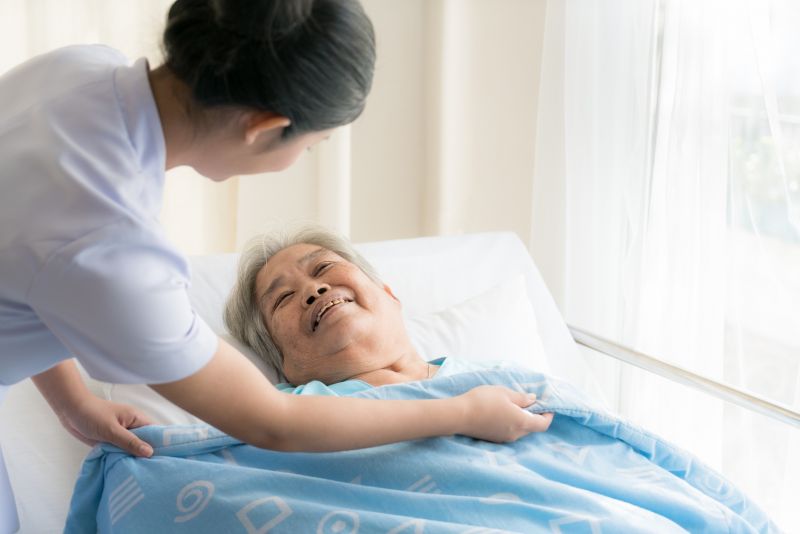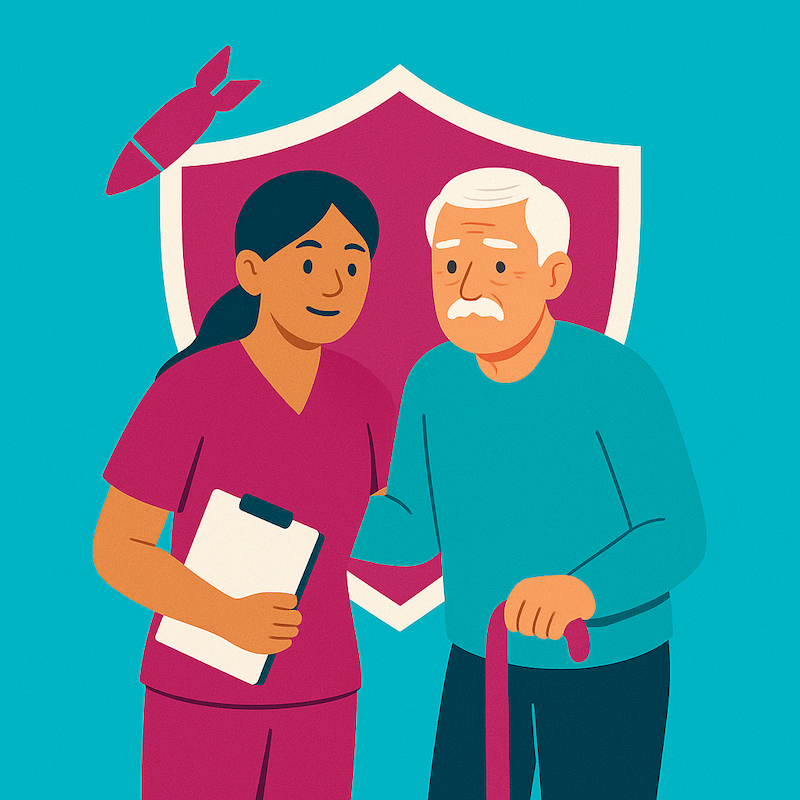Step-by-Step Guide for Safe and Comfortable Bed Baths for Elderly
iSavta | 20.03.2023

As a caregiver, one of your responsibilities may be to assist elderly individuals with their personal hygiene needs, including bathing. Bathing an elderly person who is confined to a bed can be a challenging task, but with the right approach and tools, it can be done safely and comfortably for both the caregiver and the elderly person.
Step 1: Prepare the supplies and equipment
Before you begin the bathing process, gather all of the necessary supplies and equipment. This may include a bedpan or urinal, a bedside commode, a washcloth, a towel, a bathrobe, soap, shampoo, and lotion. Make sure that the room is warm and that you have plenty of clean linens on hand.
Step 2: Assess the individual's mobility and physical abilities
Before beginning the bathing process, take the time to assess the individual's mobility and physical abilities. This will help you to determine the best approach for the individual and to identify any potential risks or complications.
Step 3: Position the individual correctly
To make the bathing process as comfortable as possible, position the individual correctly on the bed. This may involve elevating the head of the bed or using pillows to support the individual in a comfortable position.
Step 4: Begin with the bed bath
A bed bath is a type of bath in which the individual remains in bed while the caregiver washes them with a washcloth and soap. Begin by washing the individual's face, neck, and ears. Then, move on to the arms, hands, and underarms, being careful to avoid any areas of broken skin or open wounds.
Step 5: Move on to the lower body
Once the upper body is clean, move on to the lower body. Begin by washing the individual's legs, feet, and toes, being careful to avoid any areas of broken skin or open wounds. Next, clean the individual's genitals and perianal area, making sure to use a separate washcloth for each area.
Step 6: Rinse and dry the individual
Once the individual is clean, rinse them off with a wet washcloth and dry them with a towel. Make sure to pay attention to any areas that may be more prone to drying out, such as the elbows and knees.
Step 7: Help the individual dress
Once the individual is clean and dry, help them to dress in clean clothing or a bathrobe. Make sure that they are comfortable and that their clothing is not too tight or restrictive.
Step 8: Help with hair care
If the individual is able, help them with hair care, such as brushing and combing their hair. If they are unable to do so, you can use a wet washcloth to gently wipe their hair and scalp clean.
Step 9: Dispose of used linens and supplies
Finally, dispose of any used linens or supplies, and make sure that the room is clean and tidy.
It's important to note that during the process, communication is key. Always ask the individual if they are comfortable and if they need anything before starting the process.
It is also important to note that bathing frequency varies depending on the individual. Some people require daily bathing while others may only need it once or twice a week.
It is also important to work with a doctor or other healthcare professional to develop an individualized care plan that is tailored to the unique needs of the elderly person.
In conclusion, bathing an elderly person who is confined to a bed can be a challenging task, but with the right approach and tools, it can be done safely and comfortably for both the caregiver and the elderly person. Proper preparation, communication, and following the steps outlined above will help











